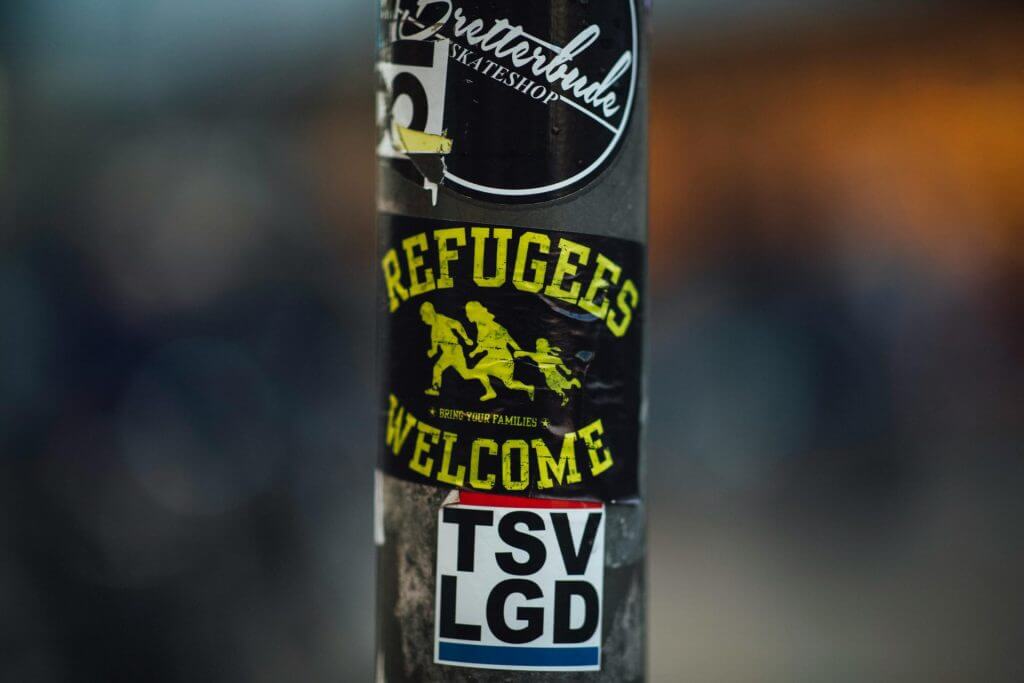Many migrants experience abuse and violence in their daily lives. Fortunately, the authorities provide them with certain legal remedies to protect them. But, can a victim of abuse apply for residency? Today we will look at everything you need to know about the residence for victims of violence.
If you are a victim of violence or abuse, you should know that you are not alone. At Urbina Immigration Law we can help you get out of violence and regularize your status. Contact one of our lawyers and let’s defend your rights together.
Table of Contents
Can a victim of abuse apply for residency?
Yes, the U.S. government grants residency for victims of violence to all migrants who have been victims of certain types of crimes. In these cases, permanent residency is accessed through the following routes:
- U Visa: Visa intended for victims of certain crimes who have suffered physical or mental abuse and who are willing to assist in the investigation or prosecution of such crimes.
- VAWA: Visa for spouses and children who are victims of abuse or domestic violence by citizens or legal permanent residents, allowing them to obtain legal immigration status without depending on the abuser.
- T Visa: Visa for victims of human trafficking who have been subjected to forced labor, involuntary servitude or trafficking willing to assist in the investigation or prosecution of trafficking crimes.
- Asylum/Refuge: Protection for persons who have left their country of origin due to persecution or well-founded fear of persecution on account of race, religion, nationality, membership in a particular social group, or political opinion.
Note that each of these resources has its own specific process and requirements. Therefore, it is best to seek the advice of an immigration attorney to choose the best option for you. At Urbina Immigration Law we can help you. Tell us your case and take the first step towards a better life.
Residency through the U Visa
U.S. immigration law allows foreign nationals who have been victims of certain crimes to victims of certain crimes adjust their status through the U visa. However, applicants must meet the following requirements to apply for permanent residency:
- Complete and file Form I-485 (Application to Register Permanent Residence or Adjust Status).
- Be lawfully admitted to the country under U-1 nonimmigrant status.
- Have U-1 nonimmigrant status at the time you file your Form I-485.
- Have been physically present in the United States for a continuous period of at least three years since being admitted as a U-1 nonimmigrant and at least three years at the time of filing your Form I-485.
- Remain in the country until the USCIS decision.
- Not having unreasonably refused to provide assistance in the investigation or prosecution of the qualifying crime of which he/she was the victim.
- Have no cause for inadmissibility under INA section 212(a)(3)(E).
- Their presence in the United States is justified on humanitarian grounds, to ensure family unity, or in the public interest.
- Demonstrate that you deserve the discretionary grant of residency for victims of violence.
The process of obtaining a U visa can be overwhelming, compounded by the anguish of having experienced a crime firsthand. But he is not alone. At Urbina Immigration Law we can help you get out of this situation and fix your immigration status. Talk to our lawyers today and let’s take the first step towards a better life together.
Documents for residency through the U Visa
To apply for residency for victims of violence through the U visa you must present the following documentation:
- Form I-485 (Application to Register Permanent Residence or Adjust Status).
- Copy of Form I-797 (Notice of Action) of your Form I-918 (Petition for U Nonimmigrant Status).
- Copy of each page of all your passports or equivalent travel documents that were valid while you maintained U-1 nonimmigrant status (or a valid explanation as to why you do not have this evidence).
- Proof showing the dates of each departure from the U.S., the date and place of return, and the reason for departure (if you left the U.S. while in U-1 nonimmigrant status).
- If you were absent from the United States for a period of more than 90 days or for periods exceeding 180 days, you must submit certification from the investigating or prosecuting agency that the absences were necessary to assist in the investigation or prosecution of the criminal activity or were otherwise justified.
- Your own affidavit attesting to your continued physical presence and evidence of continued physical presence.
- Evidence that you were lawfully admitted under U-1 nonimmigrant status and continue to have such status at the time of filing Form I-485.
- Evidence that it complied with any reasonable request for assistance in the investigation or prosecution of the qualifying criminal activity.
- Evidence that adjustment of status is justified as a matter of discretion on humanitarian grounds, to ensure family unity, or that it is in the public interest.
- Two passport photographs.
- Copy of your government issued photo ID.
- Copy of your birth certificate.
- Copy of your Form I-94 Arrival/Departure Record or copy of the U.S. Customs and Border Protection (CBP) admissibility stamp or permit indicated on the travel document (if applicable).
Eligible Family Members
Certain family members of U-1 immigrants may obtain residency for victims of violence as a derivative applicant or qualifying relative who has never held a derivative U visa. Eligible family members are as follows:
- Spouses (U-2).
- Sons (U-3).
- Parents (U-4).
- Brothers (U-5).
Family members eligible for residency for victims of violence must meet certain specific requirements. Therefore, it is essential to seek the advice of an attorney to ensure the eligibility of your loved ones. At Urbina Immigration Law we can help you. Tell us about your case and secure the future of your loved ones.
Residency through VAWA
Other persons eligible for residency for victims of violence are those who apply through the VAWA (Violence Against Women Act) program. This means that a person can obtain a green card if he or she suffered violence from a:
- A U.S. citizen or resident spouse or former spouse.
- A U.S. citizen or resident parent.
- A U.S. citizen son or daughter.
Getting out of a domestic violence situation is not easy. At Urbina Immigration Law we understand the anguish that any immigrant goes through under these types of cases. You are not alone. We can help you defend and regularize your situation through VAWA. Talk to a lawyer and let’s defend your rights together.
Eligibility for adjustment of status through VAWA
To be eligible for VAWA residency for victims of violence, you must meet the following requirements:
- Have properly filed Form I-485, Application to Register Permanent Residence or Adjust Status.
- Be physically present in the United States at the time you file your Form I-485.
- Be eligible to receive an immigrant visa under VAWA, that is:
- Have an approved VAWA self-petition (Form I-360, Amerasian, Widow(er) or Special Immigrant Petition).
- Have a previously filed VAWA self-petition that remains pending (if ultimately approved).
- Have a VAWA self-petition (if finally approved) filed with your Form I-485.
- An immigrant visa is immediately available to you at the time you file your Form I-485 and when USCIS makes a final decision on your application.
- None of the adjustment vetoes apply in your case.
- You are admissible to the United States to obtain lawful permanent residence or are eligible for a waiver of inadmissibility or other form of immigration relief.
- You deserve a favorable exercise of discretion by USCIS.
Residency documents for victims of violence with VAWA
If you wish to obtain residency for victims of violence through VAWA, you must submit the following documentation:
- Form I-485 (Application to Register Permanent Residence or Adjust Status).
- Copy of Form I-797 (Notice of Approval or Receipt) of your Form I-360 (unless you are filing Form I-360 in conjunction with Form I-485).
- Two passport photos.
- Copy of your government-issued photo ID.
- Copy of your birth certificate.
- Form I-693 (Medical Report and Immunization Record).
- Copy of the non-immigrant visa page of the passport (if applicable).
- Copy of the passport page that has the admission stamp or entry permit (issued by a U.S. government immigration officer, if applicable).
- Copy of your Form I-94, Arrival-Departure Record or copy of the admission stamp or entry permit placed by Customs and Border Protection (CBP) on your travel document (if applicable). Note: If CBP provided you with a Form I-94 upon arrival/admission to the United States, you must print the Form I-94 from CBP’s website at www.cbp.gov/I94.
- Certified police and court records of all criminal charges, apprehensions or convictions, regardless of final disposition (if applicable).
- Form I-601 (Application for Waiver of Grounds for Inadmissibility) (if applicable).
- Form I-212 (Application for Permission to Reapply for Admission to the United States after Deportation or Removal) (if applicable).
- Documentation of your past or current J-1 or J-2 nonimmigrant status (if applicable), including proof of compliance with or waiver of the 2-year foreign residency requirement set forth in INA 212(e).
Please note that this documentation is key to the success of your process. Therefore, it is best to seek the advice of an immigration attorney to gather and fill out the necessary documents correctly. At Urbina Immigration Law we can help you. Contact us and let’s get your paperwork in order.
Residency through the T Visa
A T visa is another possible way to obtain residency for victims of violence. In this case, it is a visa specially designed for victims of trafficking who have assisted authorities in the investigation and prosecution of these crimes.

Please note that the T visa process can be complicated and has its own eligibility requirements. For this reason, having an immigration attorney to guide you through the process is essential. At Urbina Immigration Law we can assist you. Tell us your case and let’s defend together your right to a better life.
T-Visa residency requirements for victims of violence
If you are a T visa holder and wish to apply for residency for victims of violence, you must meet the following requirements:
- Have been lawfully admitted to the United States under T-1 nonimmigrant status.
- Have T-1 nonimmigrant status at the time of applying for a Green Card.
- Have maintained a continuous physical presence in the United States during:
- a) An uninterrupted period of at least 3 years from the first date he/she was lawfully admitted as a T-1 nonimmigrant, or
- (b) An uninterrupted period during the investigation or prosecution of acts of trafficking, and the U.S. Attorney General has determined that the investigation or prosecution is complete, whichever period is shorter (a or b).
- He has been a person of good moral character since he was first admitted as a T-1 nonimmigrant and during the entire time his Form I-485, Application to Register Permanent Residence or Adjust Status, was pending.
- Not have left the United States for more than 90 days during a single trip or for periods totaling more than 180 days, unless you can demonstrate that:
- Their departure from the country was necessary to assist in the investigation or prosecution of acts of trafficking.
- An officer involved in the investigation or prosecution certifies that your absence is otherwise excused.
- Be in any of the following situations:
- You have complied with any reasonable requirements to cooperate with the investigation or prosecution of acts of human trafficking since you were first admitted as a T-1 nonimmigrant and until USCIS made a decision on your Form I-485.
- You will suffer extreme hardship, involving unusual and severe harm if you are removed from the United States.
- She was under 18 years of age at the time of the acts of trafficking.
- Be admissible to the United States as a lawful permanent resident. Otherwise, have received a waiver from USCIS of any grounds of inadmissibility you have.
Family members eligible for derivative residency
If you are a relative who has obtained T nonimmigrant status because of your relationship to a principal T visa holder, you may be eligible for residency. To do so, the following requirements must be met:
- Have been lawfully admitted to the United States in T-2, T-3, T-4, T-5 or T-6 nonimmigrant status and continue to hold such status at the time of applying for a green card.
- The principal nonimmigrant’s Form I-485 T-1 must be:
- Currently in process.
- It is being filed concurrently with your Form I-485.
- Previously approved, and you were initially admitted in T status but before the principal T-1 nonimmigrant became a lawful permanent resident (LPR).
- The principal T-1 nonimmigrant meets all eligibility requirements for a Green Card.
- Be admissible to the United States as a permanent resident (otherwise, you must apply for a waiver of inadmissibility).
Please note that once the principal applicant becomes a resident, you can no longer be admitted for the first time as a T nonimmigrant. Therefore, it is essential to consult with an attorney and avoid this kind of mistake. At Urbina Immigration Law we can help you. Talk to a lawyer and secure the future of your loved ones.
Residency through Refugee Status
U.S. immigration laws require refugees to apply for residency for victims of violence. However, in order to do so, the following requirements must be met:
- Have been physically present in the United States for at least one year.
- Have properly filed Form I-485 (Application to Register Permanent Residence or Adjust Status).
- Have been admitted to the United States as a refugee under Section 207 of the Immigration and Nationality Act (INA).
- Be physically present in the United States at the time of filing Form I-485.
- Be admissible to the United States to obtain lawful permanent residence (or otherwise be eligible for a waiver of inadmissibility).

Documentation required for residency through Refugee Status
If you are the principal applicant, you must submit the following documentation to apply for residency for victims of violence through refugee status:
- Form I-485 (Application to Register Permanent Residence or Adjust Status). Please note that you do not have to pay the corresponding fee in this case.
- Proof of your admission as a refugee (e.g., a copy of Form I-94 showing the date you were admitted as a refugee).
- Evidence showing that the one-year period of physical presence in the country has passed.
- Two passport size photos.
- Copy of a government issued photo ID.
- Copy of your birth certificate (if you have one).
- Copy of passport page with non-immigrant visa (if applicable).
- Copy of passport page with admission stamp or entry permit issued by a U.S. government immigration officer (if applicable).
- Copy of your Form I-94 (Arrival-Departure Record) of the admission stamp or entry permit placed by CBP on your travel document (if applicable).
- Form I-693 (Medical Report and Immunization Record).
- Certified police and court records of all criminal charges, apprehensions or convictions (if applicable).
- Form I-602 (Refugee Application for Waiver of Grounds for Exclusion) (if applicable).
Gathering and filling out all of this documentation can be an overwhelming process for any migrant. In addition, any errors could delay or compromise your application. For this reason, it is advisable to have the advice of a lawyer. At Urbina Immigration Law we can help you. Contact us and let us get your documentation in order.
Family members eligible for derivative residency
Spouses and children under the age of 21 of a principal applicant for residency for victims of violence through refugee status may also apply for a green card. However, they must meet the following requirements to adjust their status as a derivative applicant:
- Have properly filed your Form I-485.
- Have been admitted as a derivative accompanying the applicant who is the principal refugee or as a family member traveling to join and is the beneficiary of a Form I-730 (Refugee/Asylee Relative Petition).
- Be physically present in the United States at the time you file your Form I-485.
- Have been physically present in the United States for at least one year since admission as a refugee.
- Be admissible to the United States to obtain lawful permanent residence or be eligible for a waiver of inadmissibility or other form of immigration relief.
The documentation required to obtain residency as a derivative applicant is different from that required of the principal applicant. Therefore, it is best to seek the assistance of an attorney to help you gather the required documents. At Urbina Immigration Law we can help you. Tell us about your case and secure the future of your loved ones.
¿Pueden vetar mi solicitud de ajuste de estatus?
Sí, dependiendo de cómo entró al país o de si cometió algún delito o violación de la ley de inmigración, puede prohibírsele ajustar su estatus. Sin embargo, esta clase de vetos no aplican a solicitantes de una green card basada en el estatus de refugiado.
¿Qué puedo hacer si no puedo recibir la correspondencia de parte de USCIS en mi hogar?
En caso de que no se sienta seguro de recibir la correspondencia de USCIS en su domicilio, puede incluir una dirección segura en su solicitud. No es necesario que resida en dicha dirección segura y puede notificar cualquier cambio dirección postal luego de presentar una solicitud.
¿Qué son las categorías de elegibilidad para la green card?
Las categorías de elegibilidad para la green card se refieren a las diversas situaciones en las que un individuo puede aplicar para convertirse en residente permanente. Las mismas están basadas en:
– Empleo.
– Matrimonio y Familia.
– Asilados y refugiados.
– Lotería de Visa.
– Estatus de Inmigrante Especial.
¿Cada cuánto debo renovar mi green card?
Debe presentar una solicitud de renovación de su green card cada diez años o si se encuentra en cualquiera de estas situaciones:
– Su green card está por caducar.
– Aún no han pasado más de 6 meses desde la fecha de vencimiento de su green card.
– Debe solicitar la remoción de condiciones antes de que expire su residencia condicional (válida por 2 años).
Residence for victims of violence with professional legal advice
As we have seen, certain victims of crime and violence can apply for permanent residence through a series of specific visas and statuses. But the process, requirements and necessary documentation vary depending on the type of visa or status requested, which can be confusing.
This is why having the advice of a lawyer is essential to choose the best option for your case and avoid complications. At Urbina Immigration Law we can help you obtain the status you need to secure your future and that of your loved ones. Tell us about your case and take the first step towards a new life in the United States.
Sources
USCIS – U Nonimmigrant Permanent Residency (Victims of Criminal Acts)
USCIS – Permanent Residency for VAWA Self Petitioner
USCIS – Permanent Residency for Victims of Human Trafficking (T Nonimmigrant T)
USCIS – Permanent Residency for Refugees
Other resources
How to obtain a Green Card in the United States – Updated Guide
What are the Green Card categories?
What is the difference between Green Card and citizenship?
Renewal of permanent residency in the United States: steps and documentation
How to obtain legal permanent residence after obtaining a U visa?
How to apply for American residency by family petition, step by step
Green card by marriage in the United States, in detail
Juvenile Visa (SIJS) Approved: What’s next? Find out everything you need to know


